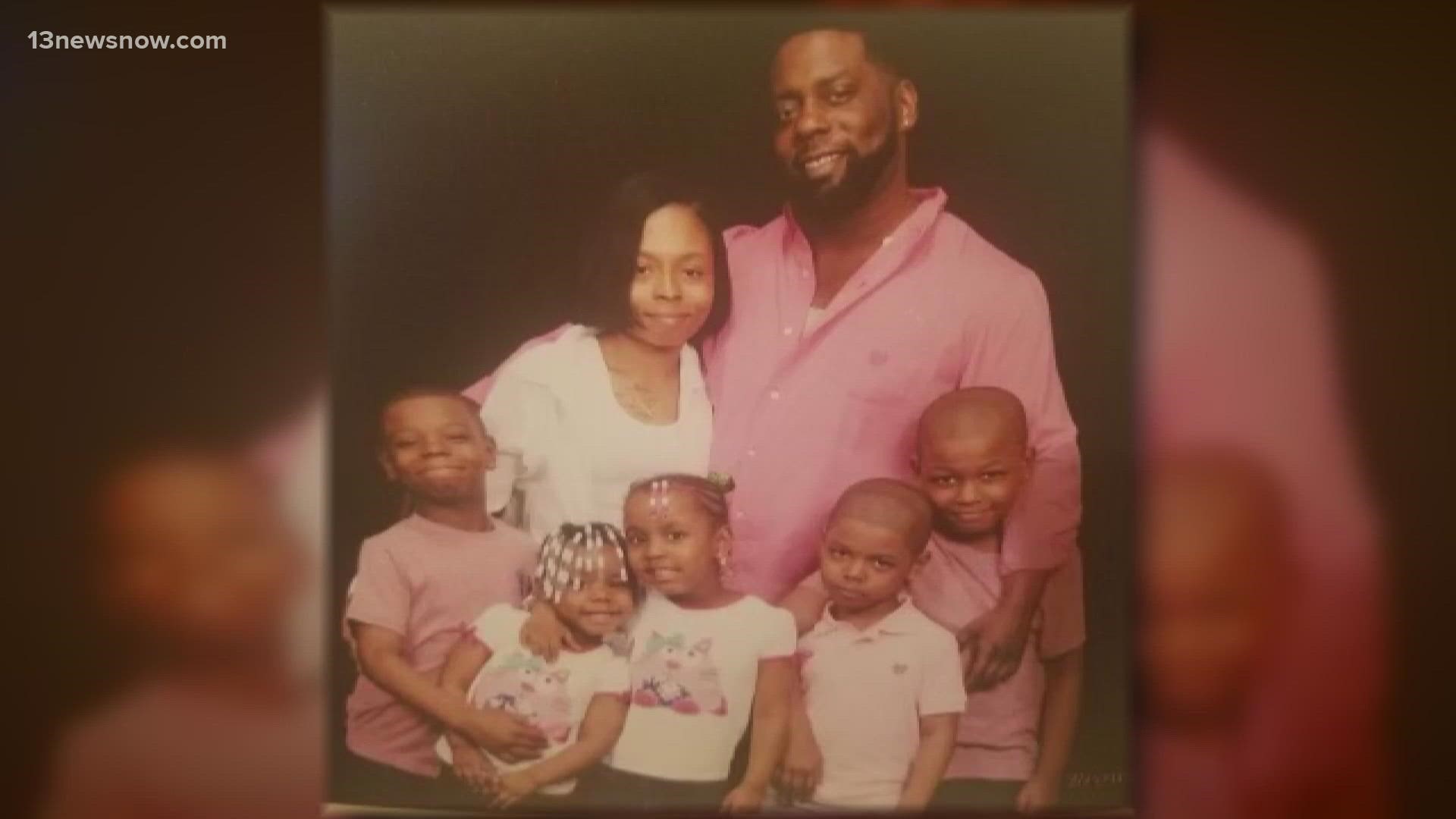ELIZABETH CITY, N.C. — An amended lawsuit by the family of Andrew Brown Jr. claims one of the North Carolina deputies involved in his shooting death in Elizabeth City "altered" a gun before it could be checked as evidence.
Pasquotank County Sheriff's deputies shot and killed Brown while attempting to serve drug-related search and arrest warrants on April 21.
Brown, 42, was shot while trying to drive away outside his Elizabeth City home.
Lawyers for Andrew Brown Jr.'s estate filed the updated claim on October 28 in the Fourth District U.S. Court of Appeals, which covers Elizabeth City.
The updated complaint lists as defendants, Pasquotank County Sheriff Tommy Wooten and the three deputies it claims fired their weapons: Investigator Daniel Meads, Deputy Sheriff Robert Morgan and Cpl. Aaron Lewellyn.
The filing dropped four other deputies and Dare County Sheriff Doug Doughtie as defendant.
Dare County and Pasquotank County deputies partnered in a joint task force to execute the warrants at Brown's home.
The North Carolina State Bureau of Investigation looked into the shooting of Brown.
District Attorney Andrew Womble ruled the shooting justified and said the deputies would not be charged.
“While tragic, the shooting of Mr. Brown was justified due to his actions,” said Womble during a press conference in May.
Womble went on to say that Brown’s actions “caused three deputies to reasonably believe it was necessary to use deadly force to protect themselves and others.”
However, the new claims allege one of the deputies, Meads, told investigators that he altered his weapon before it could be taken into evidence and expressed to another officer that he was "stressed" about the number of times he fired his weapon.
According to the lawsuit, Meads asked another police officer to “to shine his flashlight on Meads while in a dark room inside Brown’s house so Meads could count the remaining rounds in the magazine."
It says the other officer told state investigators that Meads "was stressing out about how many times he fired his weapon at Brown's vehicle," and claims Meads later emptied all the bullets from the magazine.
"According to Defendant Meads, he only wanted to count his bullets," reads the lawsuit.
Meads fired seven shots from his handgun into Brown's car, Morgan fired five rounds from an assault-style weapon and Lewellyn fired four shots from his handgun, according to the lawsuit. It claims the fatal shot to Brown's head came from the assault-style rifle.
He was also shot in the right arm and suffered wounds to his right thigh and upper back, according to The North Carolina Chief Medical Examiner's office.
Furthermore, the complaint says Meads admitted to state investigators that he altered the weapon before it was taken as evidence, and "only after it was depicted on another officer’s body camera footage that he had removed his magazine inside Brown’s house."
"Notably, Defendant Meads failed to mention in first interview with the SBI that he manipulated his magazine while inside Brown’s house in order to see how many shots he fired prior to surrendering his weapon as evidence," said the amended document.
The new lawsuit claims Womble should have known about the findings in the SBI report about Meads.
The lawsuit also contents the Dare and Pasquotank County authorities were briefed that there were "no indications that Brown was armed and dangerous" in a meeting before the attempted arrest, and the Dare County arrest warrants did not include a judge's actual written signature and were, therefore 'unlawful.'
It also now states the two highest-ranking deputies on the scene at the time of the shooting did not fire their weapons because they didn't view Brown as a threat.
Lawyers for Andrew Brown Jr.'s estate are looking for more than $31 million in its lawsuit, citing excessive force and wrongful death as the reasons.
The district attorney previously referenced a 2014 federal ruling (Plumoff v. Rickard) that claims, “if police officers are justified in firing at a suspect in order to end a severe threat to public safety, the officers need not stop shooting until the threat has ended.”
However, attorneys for Brown's estate argue that does not align with previous federal rulings. Lawyers have cited a 2019 federal ruling in the Fourth Circuit U.S. Court of Appeals, where this lawsuit has been filed, which states using deadly force after officers are no longer in a vehicle’s path is a form of excessive force.

